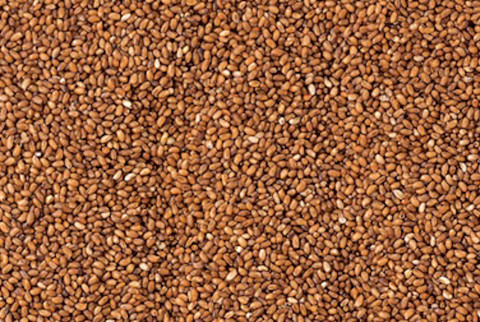How Teff Can Help Support The Gut Microbiome + Ways To Cook The Gluten-Free Grain

Ancient grains like quinoa, rye, and spelt have become pretty well-known ingredients in the U.S. market and are pantry staples in most health-conscious kitchens.
Teff, another variety of ancient grain, isn't quite as mainstream in the Western diet yet, though it has long been a staple food in other parts of the world—particularly Ethiopia, its origin country.
It was already known as a good source of protein, calcium, and fiber1, and a recent study from a team of food scientists at Cornell University found another beneficial reason to try teff: a positive impact on the gut microbiome2.
Linking teff to gut health.
"The grain teff is extremely valuable," says Elad Tako, Ph.D., associate professor of food science and the paper's senior author. "For the first time, we were able to associate teff-seed extracts and teff consumption with positive effects on the intestinal microbiome composition and function."
In addition to the link between gut health and teff consumption, the researchers also found this grain is rich in iron and zinc levels, "potentially explaining why the prevalence of dietary iron and zinc deficiencies in Ethiopia—although still significant—are lower in comparison to other neighboring African nations," says Tako.
To get this data, the study used a unique method: Researchers introduced teff seed extract to a fertile fowl egg, which allowed them to assess its impact on multiple systems, including digestion.
"By utilizing this unique in vivo model and research approach, we are able to test how a candidate compound—in this case the teff grain extract—or solution affects the gastrointestinal tract," Tako explained. "We were able to confirm positive effects on the intestinal microbiome and duodenal (small intestine) functionality and tissue morphology."
Why (and how) to cook with teff more.
This study didn't specifically observe human dietary consumption of the grain but rather confirmed what the researchers already thought about teff. The high fiber content of the grain likely leads to improvements in gut health. Because fiber is crucial for the digestive system's natural detoxifying processes, and for optimal colon health, it's logical that a high-fiber grain such as teff would benefit the gut.
Introducing the grain to your diet couldn't be easier: In its whole form, which is quite small and therefore doesn't need to be broken down first, this gluten-free grain is perfect for porridges and rice pilafs. But you can also get teff flour, which is a great option for gluten-free baking and cooking.
To cook teff, add ½ cup of teff to 2 cups a boiling liquid of your choice—you can use water, but using broth can elevate the benefits and flavor. Then cover it, reducing the heat to low and cooking for 15 to 20 minutes (you're looking for the grain to completely absorb the liquid.) Make sure to stir it, occasionally.
Want to give the flour version a try? Start with something simple, like using it in these pancakes or in a healthier version of a childhood favorite: crunchy cinnamon cereal.
